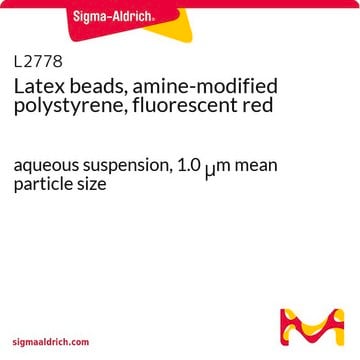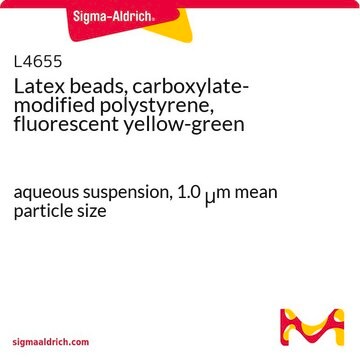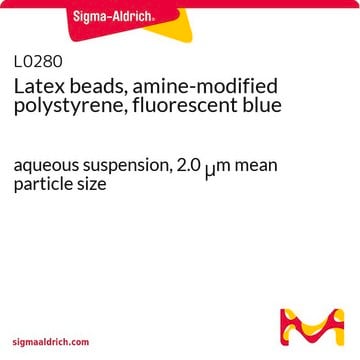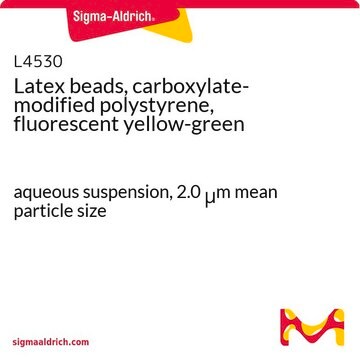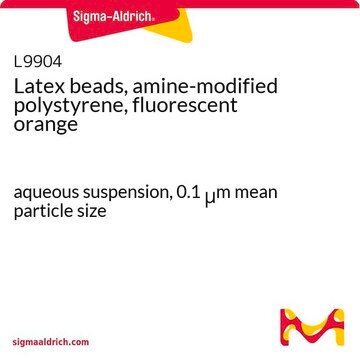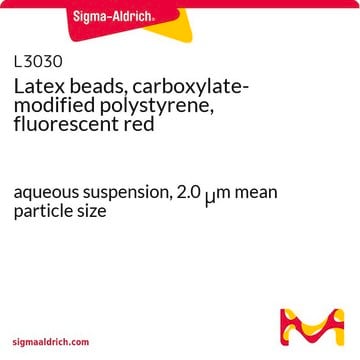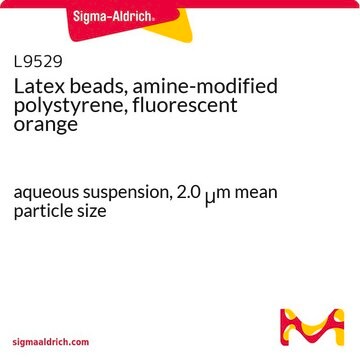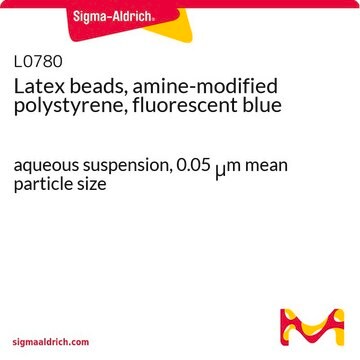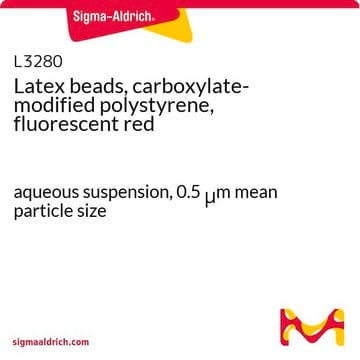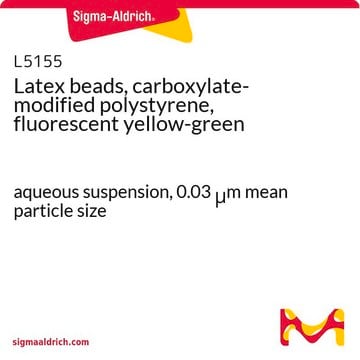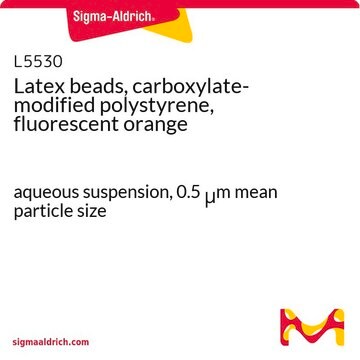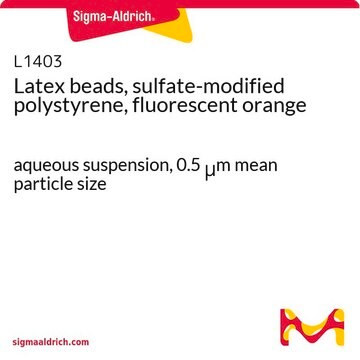L1030
Latex beads, amine-modified polystyrene, fluorescent yellow-green
aqueous suspension, 1.0 μm mean particle size
Iniciar sesiónpara Ver la Fijación de precios por contrato y de la organización
About This Item
Productos recomendados
form
aqueous suspension
composition
Solids, 2.5%
technique(s)
cell based assay: suitable
mean particle size
1.0 μm
fluorescence
λex ~470 nm; λem ~505 nm
application(s)
cell analysis
¿Está buscando productos similares? Visita Guía de comparación de productos
Application
Latex beads, amine-modified polystyrene, fluorescent yellow-green have been used:
- in the characterization of nano- and microplastics
- in tendon preparation to label tendon fascicles to enable precise localization of the tissue surface
- in phagocytosis assay to label spleen cells
Biochem/physiol Actions
Polystyrene latex beads can be used to create latex agglutination systems. It can be used to study the transmission of Mycobacterium leprae, the causative pathogen of leprosy. These beads are also utilized to develop a method for mass screening for both pulmonary and extrapulmonary tuberculosis.
Storage Class
10 - Combustible liquids
wgk_germany
WGK 2
flash_point_f
Not applicable
flash_point_c
Not applicable
Certificados de análisis (COA)
Busque Certificados de análisis (COA) introduciendo el número de lote del producto. Los números de lote se encuentran en la etiqueta del producto después de las palabras «Lot» o «Batch»
¿Ya tiene este producto?
Encuentre la documentación para los productos que ha comprado recientemente en la Biblioteca de documentos.
Los clientes también vieron
James M May et al.
Archives of biochemistry and biophysics, 440(2), 165-172 (2005-08-02)
Since activated macrophages generate potentially deleterious reactive oxygen species, we studied whether ascorbic acid might function as an antioxidant in these cells. Thioglycollate-elicited murine peritoneal macrophages contained about 3 mM ascorbate that was halved by culture in ascorbate-free medium. However
Ivan Gusachenko et al.
Biophysical journal, 102(9), 2220-2229 (2012-07-25)
Collagen is a triple-helical protein that forms various macromolecular organizations in tissues and is responsible for the biomechanical and physical properties of most organs. Second-harmonic generation (SHG) microscopy is a valuable imaging technique to probe collagen fibrillar organization. In this
Amany Ramah et al.
Veterinary immunology and immunopathology, 220, 109991-109991 (2019-12-20)
Tannin is one of the most common phytochemical secondary phenolic metabolites, which is widely distributed in various plant production systems. Dietary intake of tannin can exert different actions on the immune system. The aim of this study was to evaluate
Soumya M Turaga et al.
Neuro-oncology, 22(11), 1591-1601 (2020-06-28)
Glioblastoma (GBM) is the most aggressive primary brain tumor and has a dismal prognosis. Previously, we identified that junctional adhesion molecule A (JAM-A), a cell adhesion molecule, is highly elevated in human GBM cancer stem cells and predicts poor patient
Zhangxin Guan et al.
Frontiers in cellular neuroscience, 14, 260-260 (2020-09-26)
Loss of function mutations in the progranulin (PGRN) gene is a risk factor for Alzheimer's disease (AD). Previous works reported that the deficiency of PGRN accelerates β-amyloid (Aβ) accumulation in AD transgenic mouse brains while overexpression of PGRN could restrain
Nuestro equipo de científicos tiene experiencia en todas las áreas de investigación: Ciencias de la vida, Ciencia de los materiales, Síntesis química, Cromatografía, Analítica y muchas otras.
Póngase en contacto con el Servicio técnico